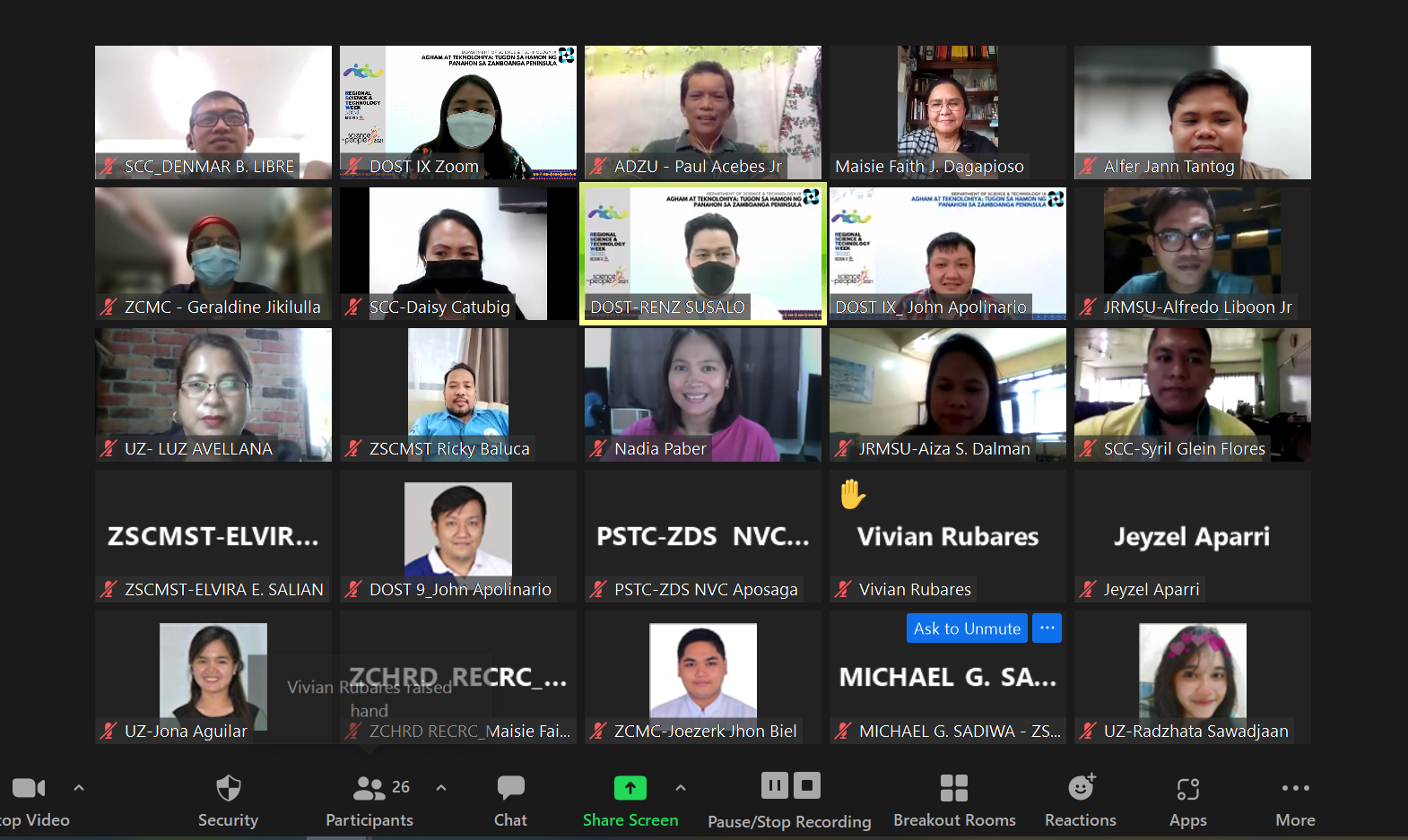Congratulations to the BS Biology 4th year students of Western Mindanao State University (WMSU) who qualified for the 2021 DOST-PCHRD Undergraduate Thesis Grant in Natural Products. 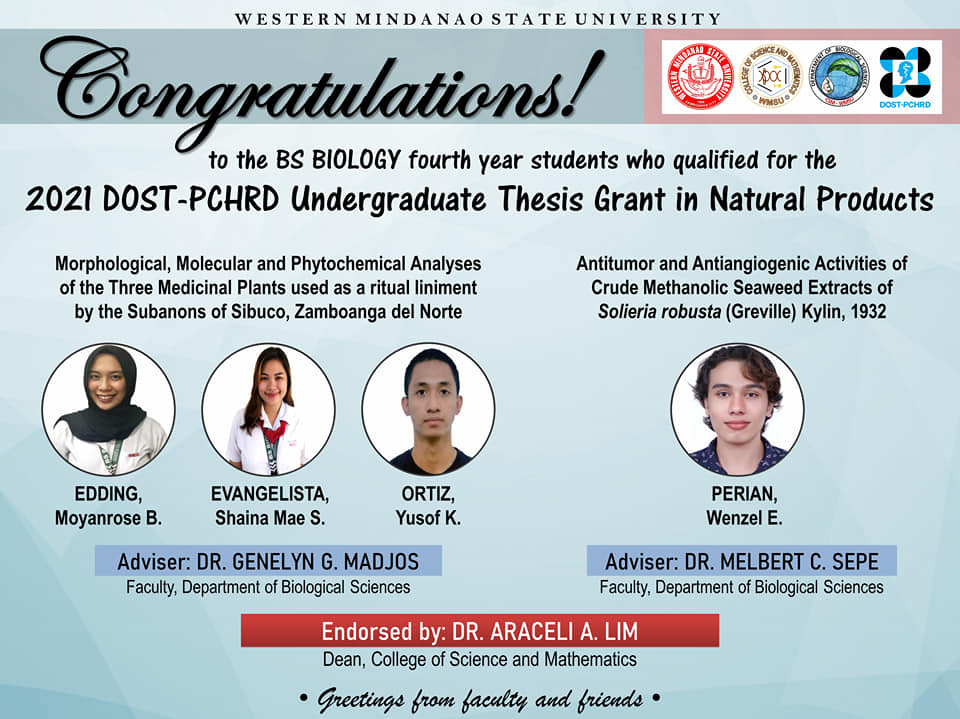
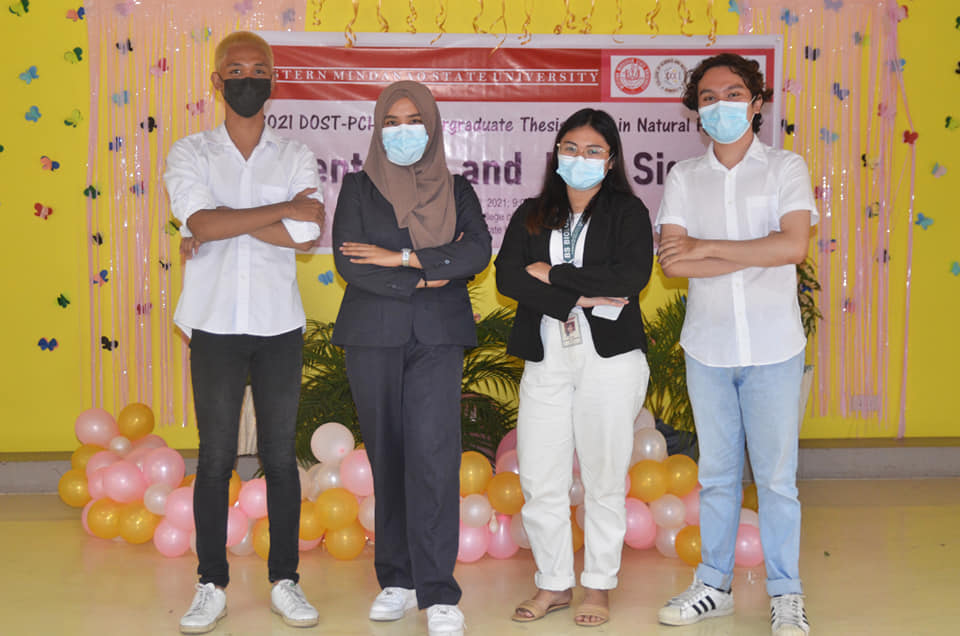
Congratulations to the BS Biology 4th year students of Western Mindanao State University (WMSU) who qualified for the 2021 DOST-PCHRD Undergraduate Thesis Grant in Natural Products. 

The Zamboanga Consortium for Health Research and Development conducted the monitoring meeting together with the two (2) project leaders of different studies, Dr. Servando D. Halili, Jr. (Presence of Microplastics in the five most common fishes sold at the selected markets in Zamboanga City), and Ms. Julienne Stephanie F. Agapin (Development of Active Packaging Films from Calamansi Peels and Cacao Pods). This monitoring gives the opportunity to the project leaders to discuss their quarterly accomplishments, problems encountered, and disbursements of funds. 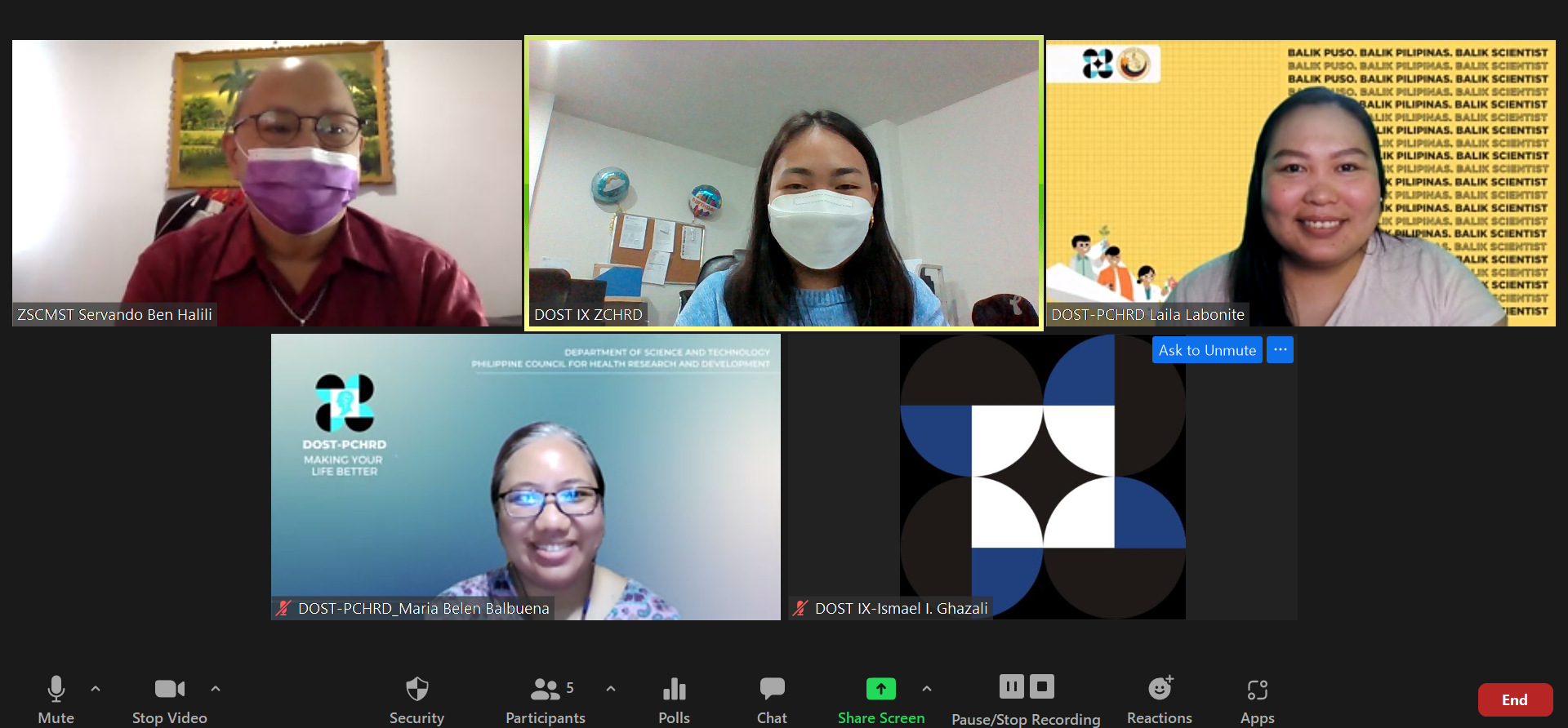
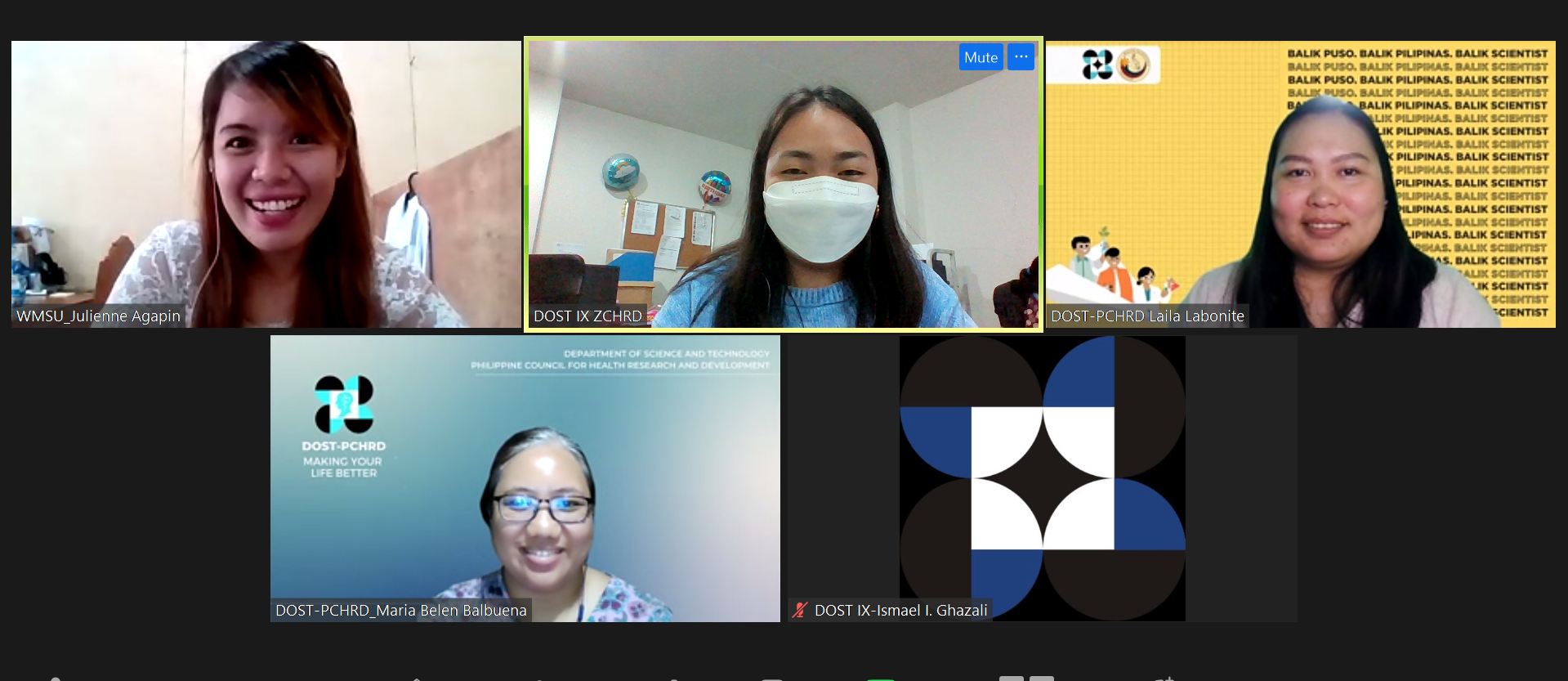
In line with the conduct of the 2021 Regional Science & Technology Week, the Zamboanga Consortium for Health Research and Development conducted the Basic Research Ethics Training. The said training aimed to help participants understand its principle on the different moral dimension of research enabling the application of ethical concepts that is to avoid, recognize, and correct ethical issues in research through workshops.

Over twenty-one (21) participants from different ZCHRD member institutions namely, Ateneo de Zamboanga University, Jose Rizal Memorial State University, Saint Columban College, Universidad de Zamboanga, Zamboanga City Medical Center, and Zamboanga State College of Marine Sciences and Technology.
The 3-day Basic Research Ethics Training is composed of nine (9) sessions and seven (7) workshops with resource speakers from the Research Ethics Review Committee members of the Zamboanga Consortium for Health Research and Development.
On the first day of training, Mr. Ricardo J. Apolinario conducted plenary sessions on the following topics: a.) ethics and research, b.) defining research ethics principles, and c.) favorable benefits and risks ratio. For the workshops, the participants were divided into three (3) groups, workshops were conducted after every topic to let the participants share their experiences and new insights on each topic. In day 1, three (3) workshops were conducted that focused on a.) incident of unethical research, b.) applying research ethics principles, and c.) measuring benefits and risks.
On the second day of training, Ms. Maisie Faith J. Dagapioso tackled the following topics: a.) preparing an adequate and appropriate informed consent process and form, b.) protecting vulnerability in research, c.) selecting research subjects fairly. After every lecture, there were three (3) workshops conducted, a.) obtaining informed consent (analyzing the scenario), b.) protecting the vulnerable, and c.) scientific soundness and just.
On the third day of training, Mr. Halid M. Tamano, discussed the following topics: a.) qualified researcher, b.) international and national guidelines, c.) navigating the ethics review process.
At the end of the 3-day training, the speakers successfully helped the participants understand the basic principles and concepts of ethics in research, pointing-out and correcting ethical issues, and helped motivate the participants to advocate quality ethical research. The speakers also reminded the participants that in a study involving human as the subject, the proponent/researchers must observe and implement the ethical guidelines and principles to safeguard the privacy and dignity of the person/s involved.
